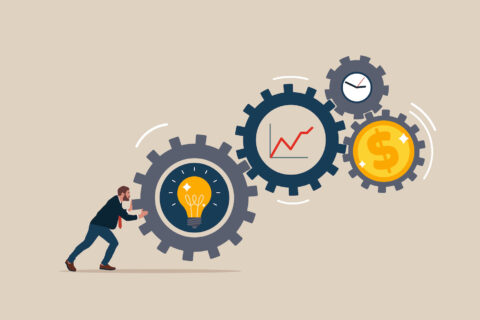Last Update: December 1, 2014
As our world continues to become completely immersed in digital technology, the amount of data available has exploded. As a business executive analyzing large data sets – big data – will become a key basis of competition and growth for individual firms.
Leaders in every sector will have to grapple with the implications of big data, not just a few data-oriented managers within your organization. This is due to the increasing volume and amount of detailed information being captured by the rise of multimedia, enterprises, mobile , social media and more — that the Internet makes available to us.
In fact, in most industries, everyone from established competitors to new entrants alike will leverage data-driven strategies to innovate, compete, and capture value from deep and up to real-time information. Big data also offers considerable benefits to consumers just as much as it does to companies and organizations. For example, there are many different services that are enabled by personal-location based data.
How to Use Big Data to Create Value
There are five broad ways in which using big data can create value for your company and your consumers.
1. As organizations create and store more transactional data in digital form, they can collect more accurate and detailed performance information on everything from product inventories to sick days, and therefore expose variability and boost performance.
Leading companies are already using data collection and analysis to conduct controlled experiments to make better management decisions; others are using data for basic low-frequency forecasting to high-frequency ‘nowcasting’ to adjust their business levers just in time.
2. Big data can unlock significant value by making information transparent and usable at a much higher frequency.
3. Big data allows even narrower segmentation of customers and therefore much more precisely tailored products or services. Placing this in the context of a retailer, we’d see that as data flows in from point of sale systems, you could match buying patterns against social activity streams and map exactly what event triggered a spark of purchase in a specific region.
4. Sophisticated analytics can substantially improve decision-making as more in-depth and elaborate customer profiles are created.
5. And finally, big data can be used to improve the development of next generation products and services. For instance, manufacturers are using data obtained from sensors embedded in products to create innovative after-sales service offerings such as proactive maintenance (preventive measures that take place before a failure occurs or is even noticed).
As you put these five points together you can see not only what the world is saying, but how external measures correlate to business behaviors and results.
Is Your Small Business Ready for Big Data?
Research shows that there will be a shortage of talent necessary for organizations to take advantage of big data. By 2018, the United States alone could face a shortage of 140,000 to 190,000 people with deep analytical skills as well as 1.5 million managers and analysts with the know-how to use the analysis of big data to make effective decisions.
Therefore, as your company looks to capitalize on opportunities presented by big data, you must also be aware of issues that will need to be addressed to capture the full potential of big data. You’ll need to be aware of policies related to consumer privacy, security, intellectual property, and even liability.
Structuring workflows and incentives to optimize the use of big data is just as important having the right talent and technology in place. While simply having access to data is critical – organizations will need to integrate information from multiple data sources, often third party vendors, and the incentives must be in place to enable this.
Bryan Young is CEO of digital agency BEC, an adaptive marketing firm based out of Raleigh, NC. At 25, Bryan was nominee for Ernst & Young Entrepreneur of the Year and named a Top Entrepreneur under 25 by Businessweek. Bryan has run adaptive marketing campaigns for the likes of the Democratic National Convention, CLT Airport, Clinique and Colliers International. Connect with Bryan on Twitter.
© YFS Magazine. All Rights Reserved. Copying prohibited. All material is protected by U.S. and international copyright laws. Unauthorized reproduction or distribution of this material is prohibited. Sharing of this material under Attribution-NonCommercial-NoDerivatives 4.0 International terms, listed here, is permitted.













